Making a difference to people's lives is a great feeling
- Published
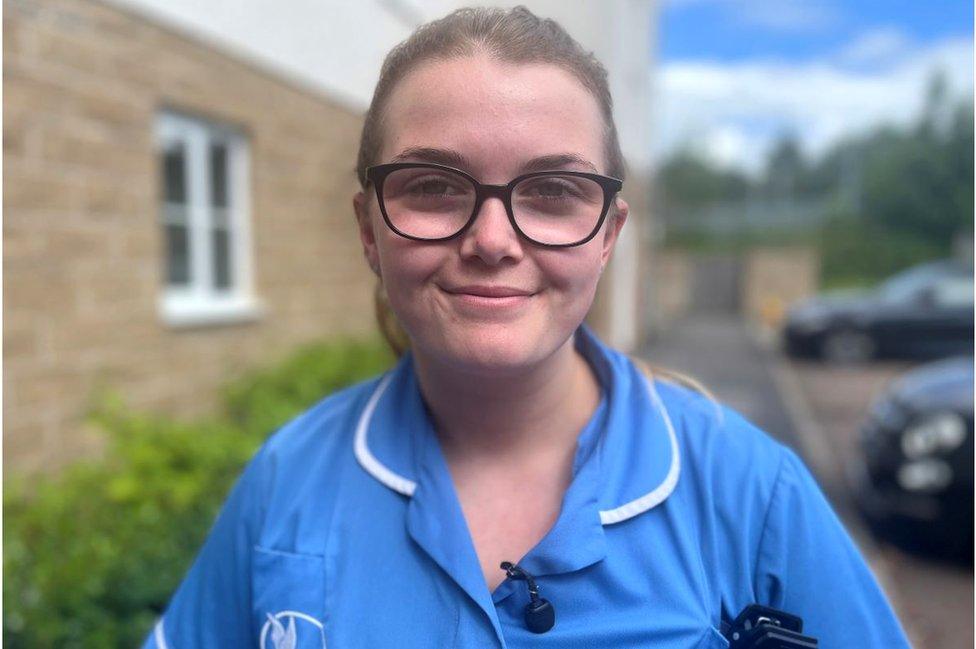
Morgan Gribben left her job in Primark to work in the care sector
Scotland is experiencing a severe shortage of care, with more than 10,000 people currently waiting for the help they need to help them stay in their own homes. Two carers working in South Lanarkshire told us about their job - and the impact they have on the people they see each day.
Anne Kennedy is only 70 but since suffering a stroke aged 52, she has needed personal care to support her to live at home in Uddingston, South Lanarkshire.
She says that without the visits from Morgan and Priscilla from Bluebird Care, she would probably have to go into a home.
Morgan Gribben, 24, became a care assistant this year after five years in retail, including working for fashion chain Primark.
She says she hasn't looked back, telling BBC Scotland: "It's a big difference but I really enjoy it."
Anne says it is good to see a familiar face.
"You do get to know them but mostly they get to know you. They know your mannerisms and your awkwardness at times.
"It's good then, because you've got a rapport with people, and you don't need to always tell them what to do."
Anne gets four visits each day, as she can't use the bathroom herself, but other than that she says she is very independent within her flat. She makes all her own meals and keeps in touch with friends by phone and on the computer.
"I love being here, but I couldn't be here on my own," she said.
"If I wasn't in a wheelchair, I would be fine, but I definitely need support.
"It gives you the freedom to do more or less what you want, rather than being regimented."
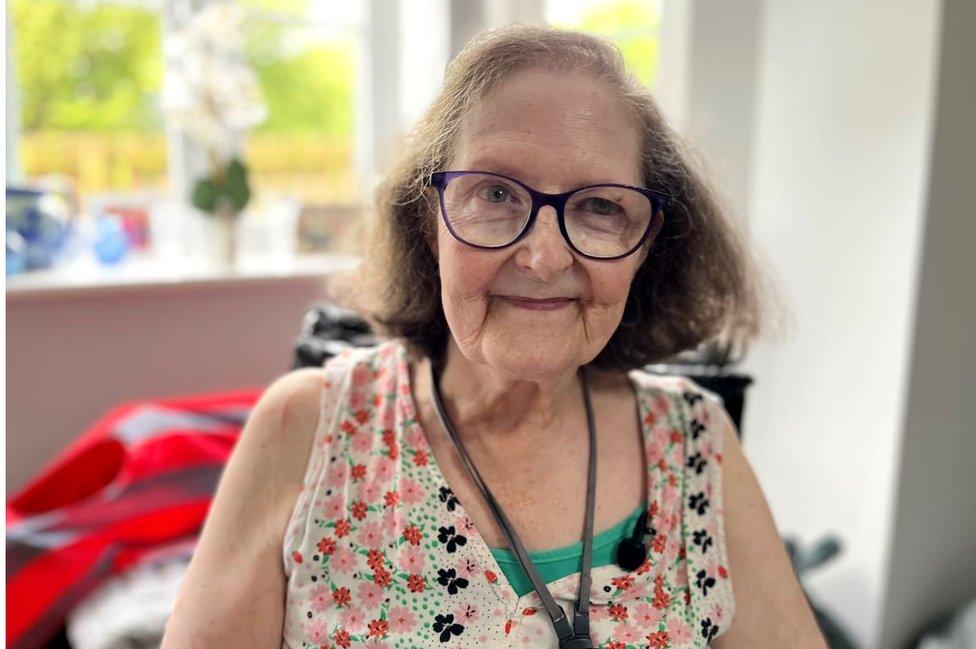
Anne Kennedy believes she would have to go into a home if she did not have her carer visits
Anne is lucky to have the care that she needs.
Figures to July 25 show there were 6,253 people in Scotland waiting for a social care assessment in the community or in hospital, and another 3,964 who had been assessed but were still awaiting a care package.
In South Lanarkshire, there were 264 people waiting for assessment and 1785 waiting for a care package. Those figures include 77 people in hospital beds who could not be discharged until their care needs were provided for.
Maurice Logie, who runs Bluebird Care, said it was very challenging to recruit carers to fulfil those needs, because of the lower pay rate offered by councils to private care companies like his, compared with care assistants directly employed in the public sector.
It also makes it harder to keep the business afloat.
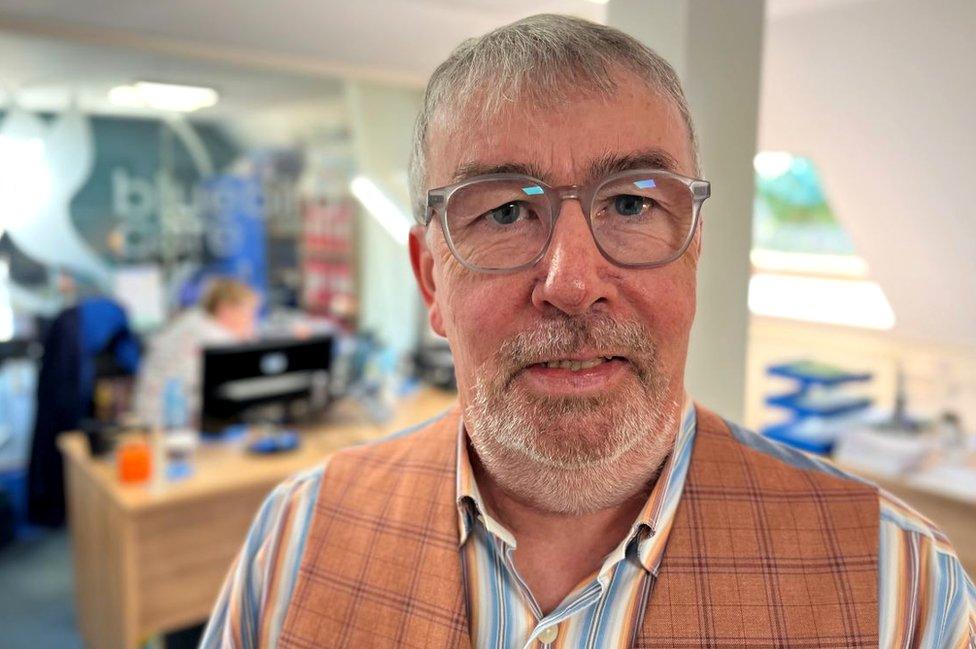
Maurice Logie's company, Bluebird Care, is paid £20.21 per hour of contact time with customers but the real minimum cost is said to be £26.50 per hour
"Our local authority [gave us] a 3.3% uplift in our hourly rate. The in-house staff got 22%, which I don't begrudge them - but it's creating a massive gulf.
"They're doing the same job and yet we feel we're getting squeezed all the time, and that cannot continue."
South Lanarkshire Council (SLC) pays Bluebird Care £20.21 per hour of contact time with customers. The Homecare Association, which calculates the real minimum cost of providing home care, puts the price at £26.50 per hour.
The council said it had increased its hourly rate after receiving its funding settlement from the Scottish government.
SLC said that despite the challenging financial circumstances, it would do its best to support providers like Bluebird Care, who played "an important role in supporting service users and indeed the wider system across South Lanarkshire".
Maurice Logie said his company was providing better value for money to the taxpayer, but was not getting supported.
"That hourly rate has to pay for the staff, the training, the office team - everything we do has to come out of that," he said.
"The margins are now so tight that it's not encouraging people to come into the sector and ultimately that's going to mean there's less provision for my parents, your parents, ourselves when we get old, because it's contracting."
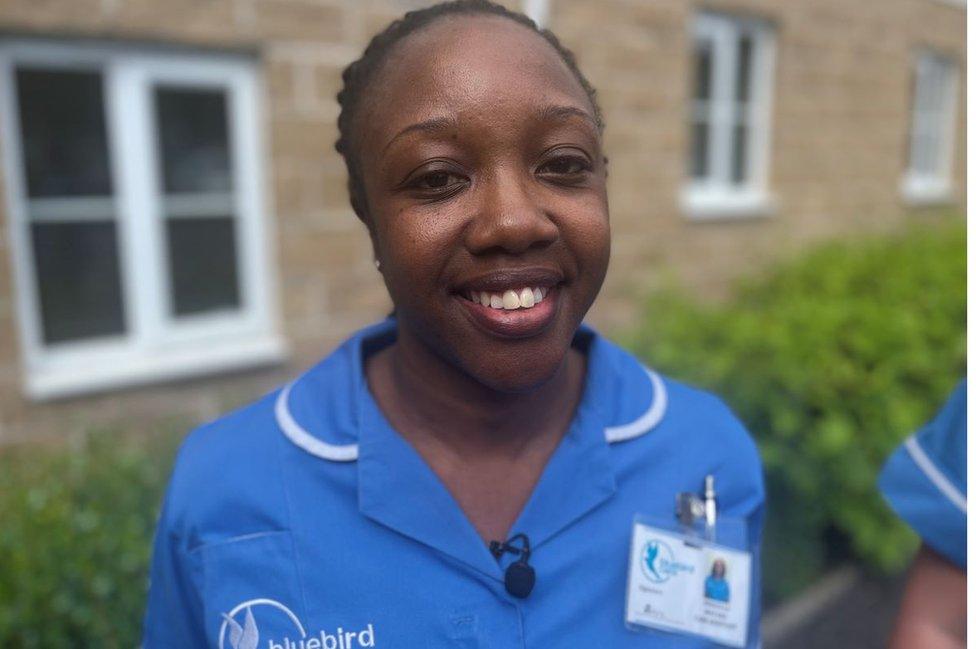
Priscilla Matara was recruited from Zimbabwe on a foreign workers' visa
He added that applying for skilled worker visa status through the Home Office has been a game changer for finding carers. Among his staff of 50, he can now count 12 nationalities.
"We're constantly recruiting, but if we didn't have the foreign workers then we would have to potentially close the doors, because in the last six months to a year, we've hardly had any local workers."
Priscilla Matara, who works alongside Morgan, was recruited from Zimbabwe on a foreign workers' visa because care assistants are designated as a shortage occupation by the UK government. She says she jumped at the opportunity, and she feels passionate about working in care.
"At the end of the day, it's just seeing that customer smile, and knowing that you caused that smile, that's so fulfilling," she said.
"I really enjoy the work that I do, working with different customers. In the future I would love to go deeper, probably into nursing. I think I would find that fulfilling as well."
Priscilla and Morgan's next visit is with Val Cuthbert, a few doors down from Anne. Val, 54, worked as a theatre manager in Glasgow before her multiple sclerosis progressed, and now she needs a high level of care at home.
The carers attend together in case they need to use the hoist to move her from her bed into a chair. Val struggles to speak but it's clear the care she receives is invaluable.
"They're so helpful and so nice. They give you all the care and more. It's so important," said Val.
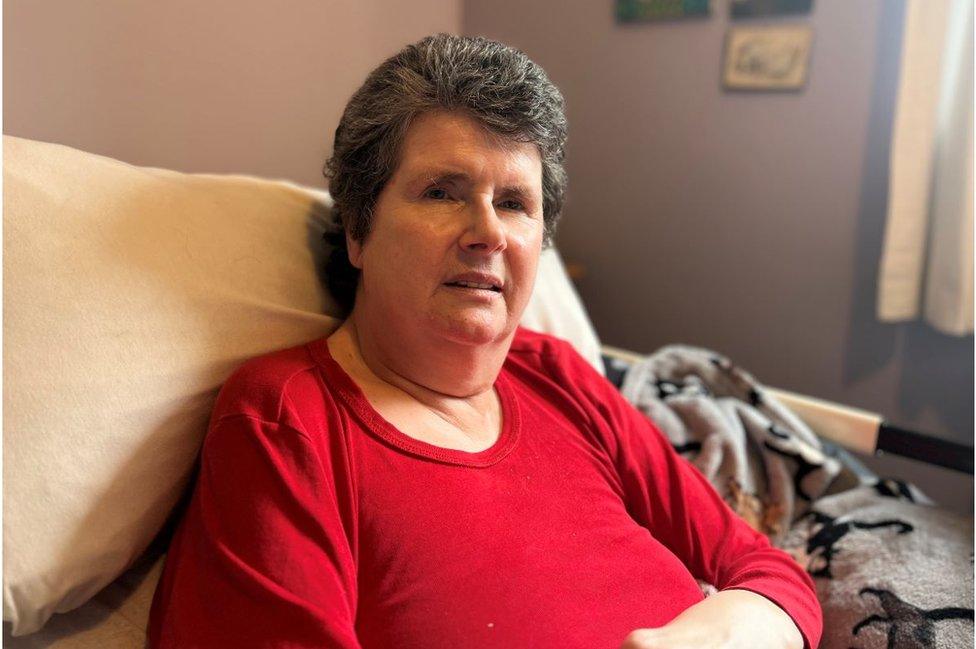
Former theatre manager Val Cuthbert needs support since her multiple sclerosis progressed
Morgan says she has built up a relationship with Anne and Val and the rest of the customers on her run.
"You can see the difference it does make. Anne, for example, always tells us that she wouldn't be able to be where she is if we weren't in to give her that little bit of assistance.
"Val needs more help but we're still here to do it and keep them at home.
"They get to know us as well, so it's always cracking a wee joke and you get a wee bit of banter."
She says the long hours often fly by.
"It goes in quick, and you don't realise you've been out as long as you have. It's definitely worthwhile in the end.
"I honestly think it's the best job I could do, coming in and making a real difference to people's lives. It's a great feeling."
She says it's never tempting to look for better-paid work elsewhere. "It's a satisfying job. I love it."